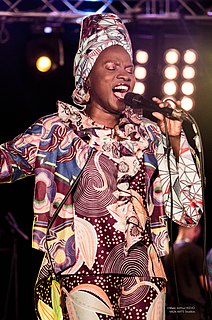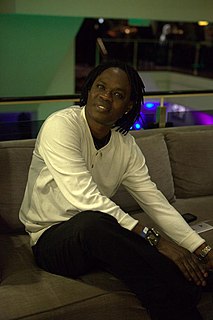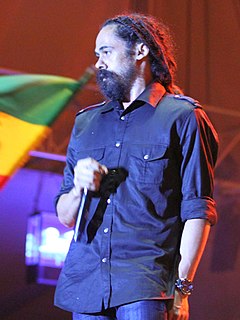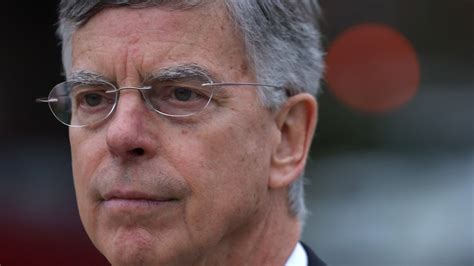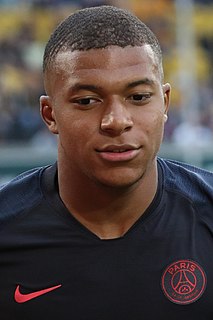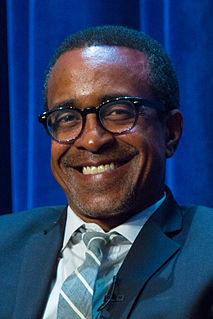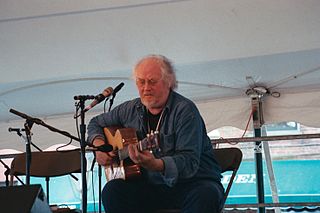A Quote by Paul Weller
My own personal theory is that all popular music, in whatever form it is, to me, it all comes from Africa. Whether it's filtered through America or whatever - African-American. But I still think there's something in that roots music that's very, very African, and I think that's what unites people.
Related Quotes
The music of the westerner comes from Africa, whether they like it or not. The majority of the instruments of the music, of the pop music, rock and roll, or R&B, hip hop, whatever it is, their roots trace back to Africa. So if you are black, white, yellow, or red, whatever you do, it doesn't matter, because your DNA is back in Africa.
I did not like that name "world music" in the beginning. I think that African music must get more respect than to be put in a ghetto like that. We have something to give to others. When you look to how African music is built, when you understand this kind of music, you can understand that a lot of all this modern music that you are hearing in the world has similarities to African music. It's like the origin of a lot of kinds of music.
I feel like kids that grew up in New York City or in L.A. were exposed to all these subcultures and subgenres, whereas I was only exposed to the poppiest of pop music so I never had this negative connotation towards pop music. That's not South African music having an effect on me, but just how international music was filtered through South Africa affected me. It gave me a not-negative connotation towards pop music growing up.
Music, to me, is the most beautiful form, and I love film because film is very related to music. It moves by you in its own rhythm. It's not like reading a book or looking at a painting. It gives you its own time frame, like music, so they are very connected for me. But music to me is the biggest inspiration. When I get depressed, or anything, I go "think of all the music I haven't even heard yet!" So, it's the one thing. Imagine the world without music. Man, just hand me a gun, will you?
I was interested in a whole range of music that I used to play, popular music -- particularly American music -- that I heard a lot of when I was a teenager," "I think at a certain point it dawned on me that myself playing this music wasn't very convincing. It was more convincing when we played music that came from our own stock of tradition. ... I certainly feel a lot more comfortable playing so-called Celtic music.


